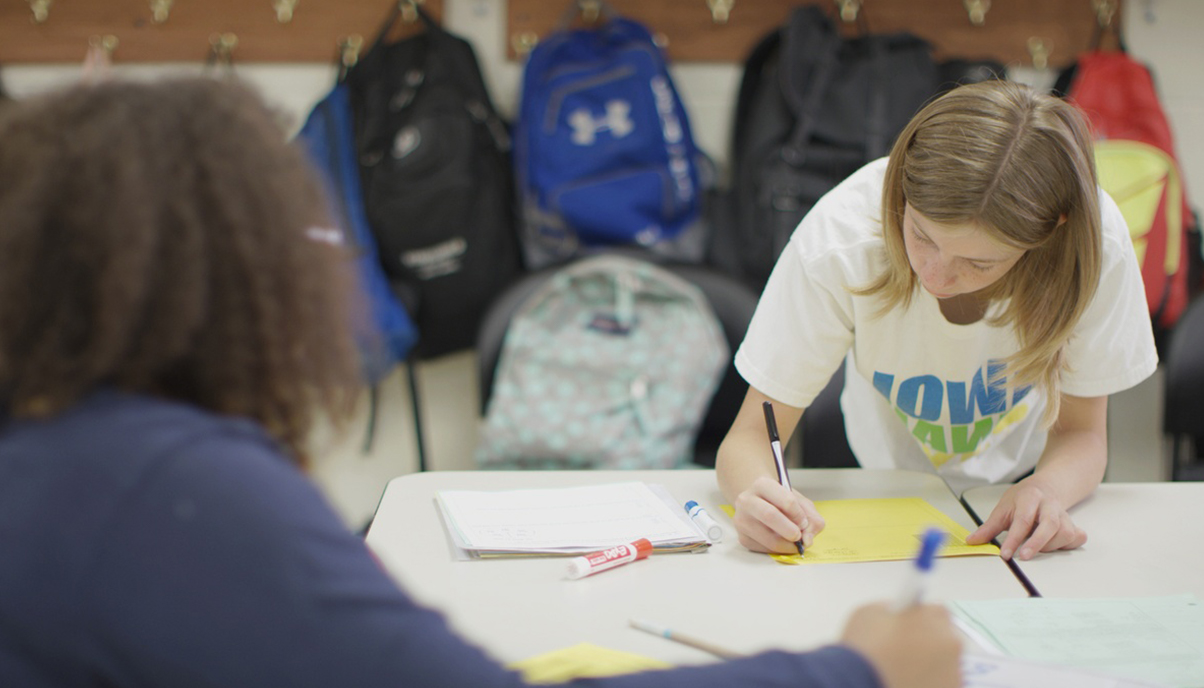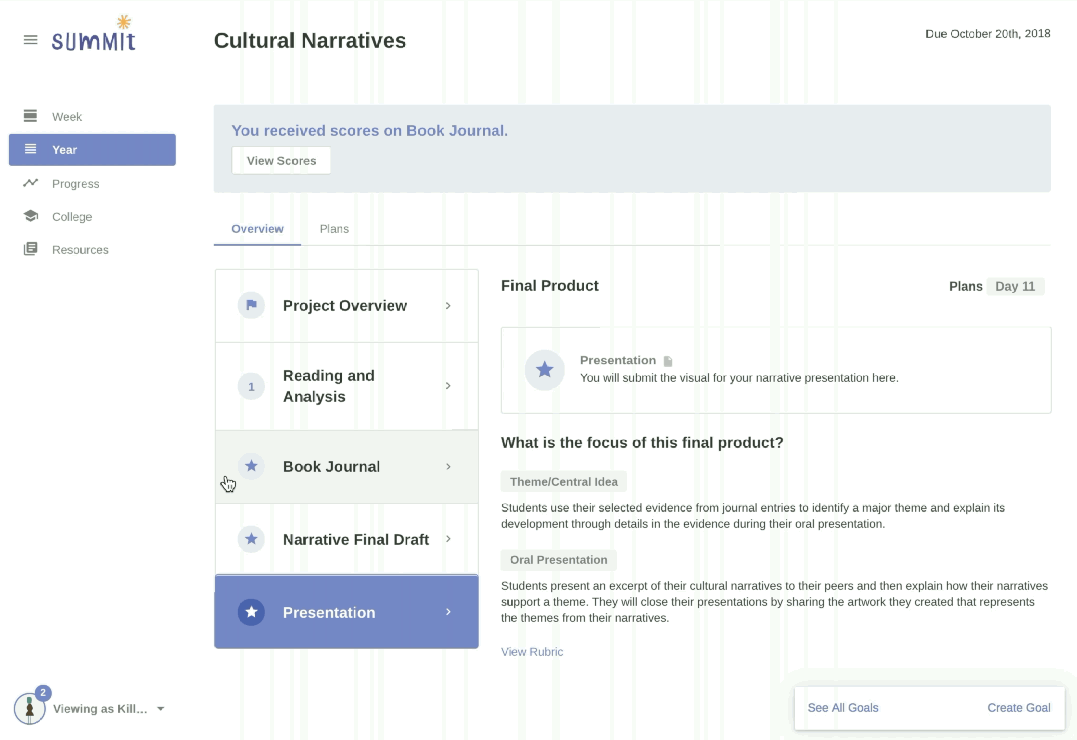
Teachers spoke and we listened!
In projects that require multiple final products, teachers can now grade each final product as students complete them — that means more efficient grading for teachers and quicker, more accurate feedback for students.
Summit Learning developed and tried out this new feature with volunteer schools and teachers, who shared their experiences and the benefits it offers to teachers, students, and parents.
Clearer Communication with Families & Students
A more flexible project grading and feedback structure also means less confusion for parents and families. Prior to this feature being updated, high school Teacher Daniel Motta — who teaches AP psychology and design thinking in Kansas City – might have left a product ungraded until the entire project was finished.
This often ended up in students getting a false “incomplete” in their grading dashboard — not something a parent likes to see and stressful for some students. “That made the communication part with parents tricky… also, we were creating anxiety for [high-striving] students that was unnecessary,” he said.
Now students can turn in a product, receive feedback, and move on to the next final product without waiting and worrying about their score. “It allows for a lot more flexibility and freedom,” explained Daniel, who has also seen a shift in some of his students’ work. “I could see either more investment, more focus on the other products … it drove them to look at feedback more vigorously earlier than, say, waiting until the end of the project.”
Getting the grade can be a motivator for students — especially if they feel there’s room to improve through additional work.

Increased Student Understanding and Engagement
Especially for students new to Summit Learning, the separate product scores allow students to visually understand which skills in a project have already been graded, and what still remains to be done.
Jill Jordan, a high school English teacher in Nampa, Idaho, often graded a project based on only one product, which meant students received a full project grade — even though the project was not yet finished. This was confusing to some students, who thought they were done with a project or wondered why they’d gotten such a low grade. As Kate explained,
“The[multiple final products] feature allows students to better understand expectations [of what still needs to be done], and keeps them engaged through the end of a project.”
More Efficient Grading for Teachers
Until now, final products could not be graded individually. That is, unless a teacher wanted jump through an extra hoop by going back to rescore all products once a project was complete. This is exactly the situation that Daniel found himself in time and again.
Jill would also grade individual products, but not through the Platform. “I would do things like score a seminar and hold it. Then there was that extra step, because [the students] wanted to know [their score], I would often print rubrics and give them printed rubrics back instead,” she explained.
The multiple final products scoring feature eliminates unnecessary work for teachers, giving them more time to do what matters most — teach and and guide students in reaching their full potential.
Read about Summit Learning’s Mentoring Tool, which helps students and teachers better prepare for their weekly mentor check-ins.

